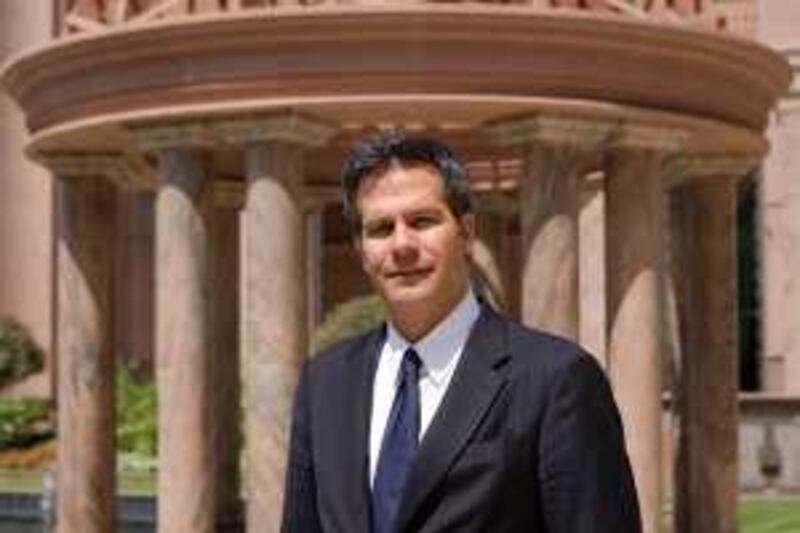ABU DHABI // Abu Dhabi needs to focus on attracting highly skilled labour to ensure a sustainable economy, a senior official said yesterday as delegates from around the world gathered to discuss ways to build good cities.
Representatives from cities as far flung as Toronto and Taichung arrived in the capital for the two-day Global City 2009 conference where the buzzword was "inclusion". The concept is particularly apt in a place where most residents come from somewhere else, but it soon became clear Abu Dhabi was not alone in seeking a formula to cater for all of its disparate people. Global City, which began in 2005, is being held outside France for the first time. More than 300 leaders and delegates, including 50 mayors, assembled at Emirates Palace to discuss a range of issues.
Richard Florida is the American author of Who's Your City? and a professor and director at the Martin Prosperity Institute at the Rotman School of Management at the University of Toronto. His focus is social and economic theory, and his address about inclusion reverberated in other sessions throughout the day. Speaking on the sidelines of the conference, Ahmad Mohammed Shareef, undersecretary of the Abu Dhabi Department of Municipal Affairs, acknowledged that the short-term nature of Abu Dhabi's labour arrangements was a barrier to inclusion.
Focusing on highly skilled labour, he said, would help Abu Dhabi in the long run. "I think it is the right of any nation to organise its development the best way that serves the economy in terms of sustainability." A poll that Mr Florida worked on with the research company Gallup in 2005 showed that while people required physical and economic security and knowing they would be able to support themselves and not be the targets of crime, they valued almost equally living in a city they perceived as open to everyone.
"This idea of having an inclusive city," he said, "where everyone is valued and everyone can have a go and every individual can have an economic opportunity ... they were more likely to be excited about living in that city." Mr Florida said the concept of inclusion would be a key challenge for Abu Dhabi as it tried to accomplish a variety of goals amid such cultural and social disparity where many expatriates could claim residency but not citizenship.
Peter Woods from Australia, the secretary general for United Cities and Local Governments Asia Pacific, said inclusion went beyond making people feel good; it was the key to sustainable economic growth. "Success through immigration cannot be optimally achieved just by the sheer fact that they might be admitted to the country," he said. "What matters is how they've been received ... people are not a commodity to be traded."
The issue of inclusion spilled over into the closed-door meetings and workshops that were part of the leader's summit, held in conjunction with the public forums at Global City. Much of the focus in those sessions - Salah al Shamsi, the chairman of the Abu Dhabi Chamber of Commerce and Industry and the Federation of UAE Chambers of Commerce and Industry was one of the attendees - was on the challenge of keeping city dwellers mobile.
But the sessions revealed that the concepts of mobility and social inclusion were seen as closely related; enabling people to move easily around their municipalities could make them feel more involved and valued, said Mireille Apel-Muller, the chief executive of the City on the Move Institute in Paris. The introduction and expansion of a city bus system over the past year had been an example of the Government's dedication to this concept, she said.
"In Abu Dhabi, public transportation is more used by people who are at a low social level, and that transport is very subsidised, and it's a political choice for such inclusion," she said. Inclusion even extended to culture, Mr Florida said. While high culture - the "great museums" that will eventually grace Saadiyat Island - was important, offerings at street level were also needed to ensure "the diverse peoples who settle and work here have cultural outlets".
amcqueen@thenational.ae * with additional reporting by Natalie Gillet Editorial, page a23






